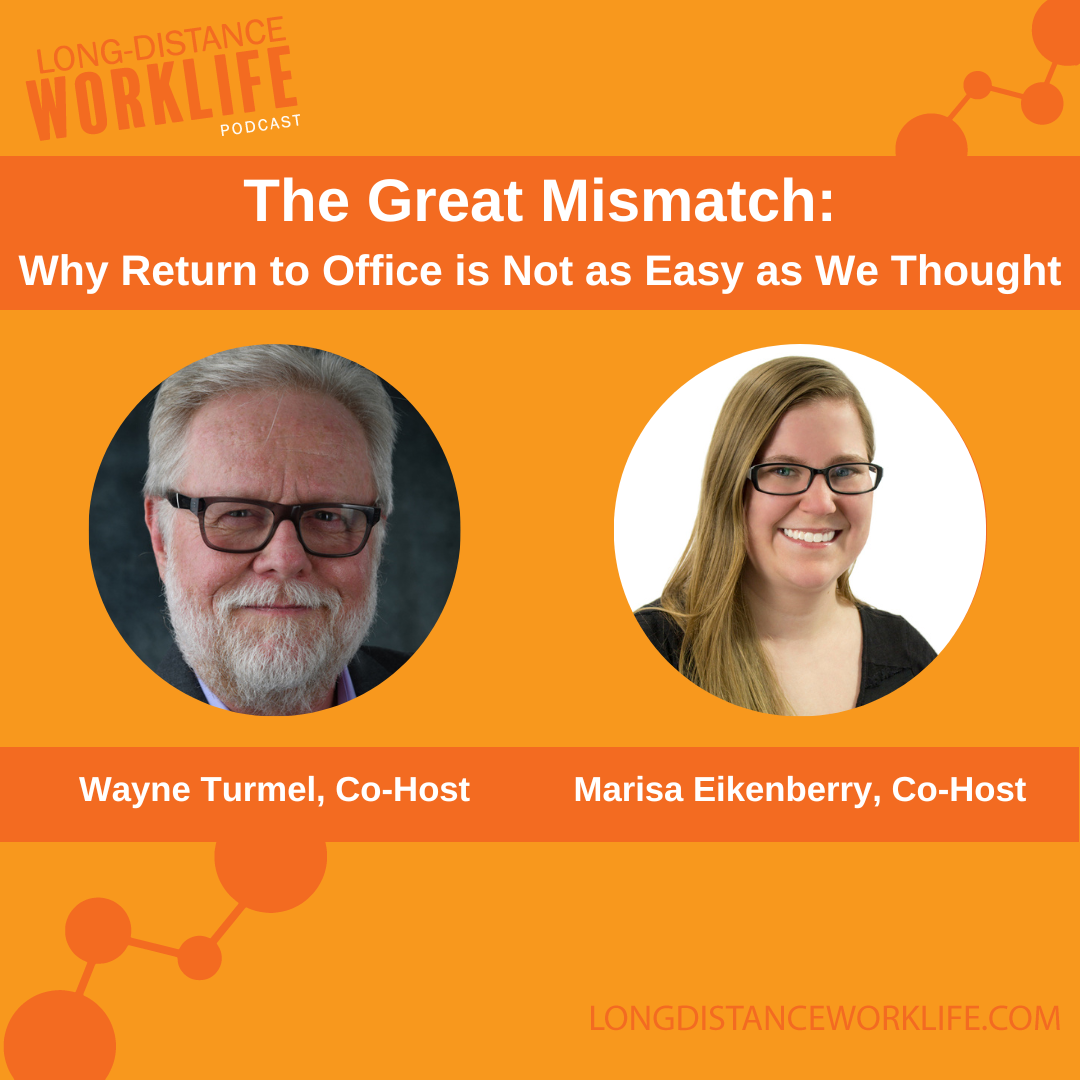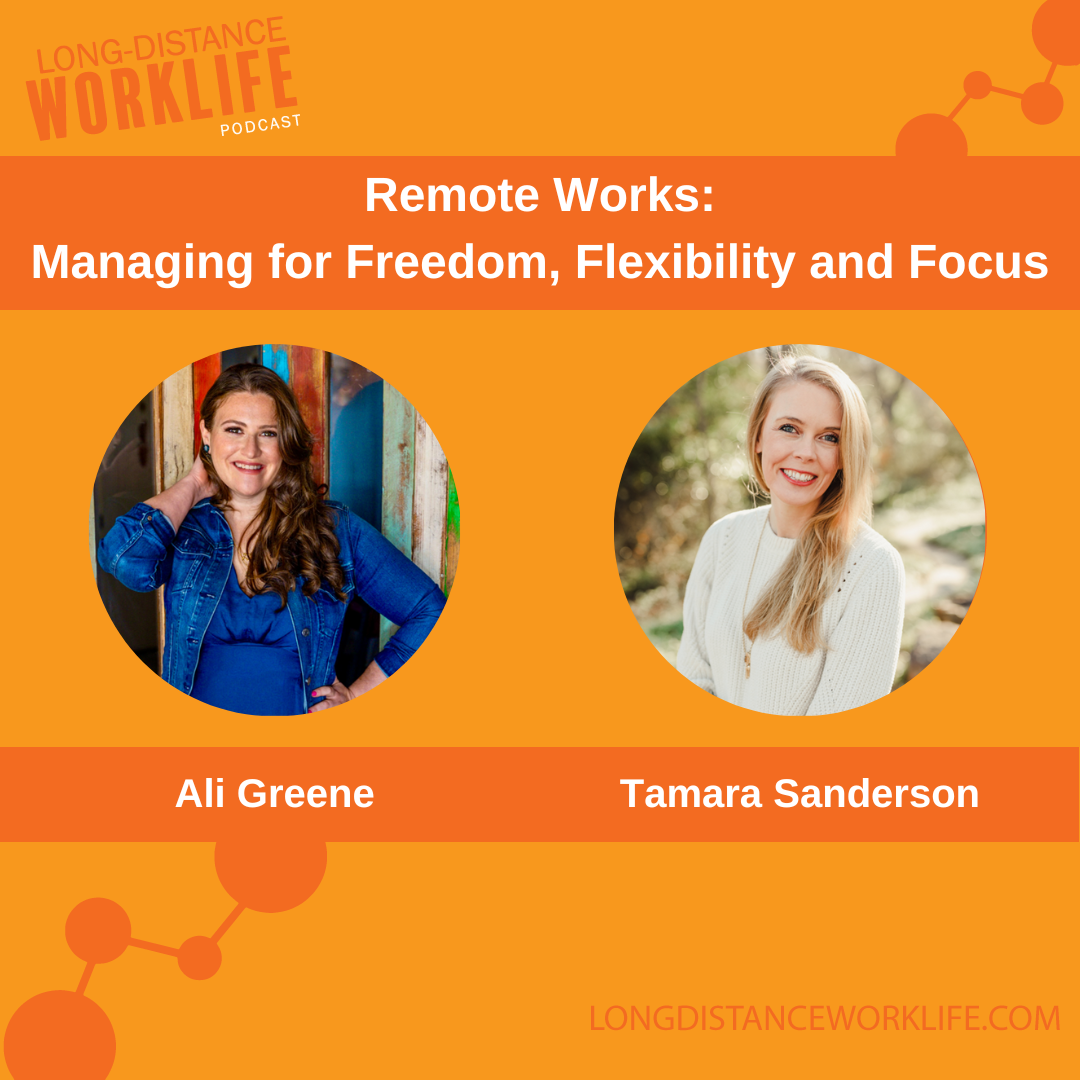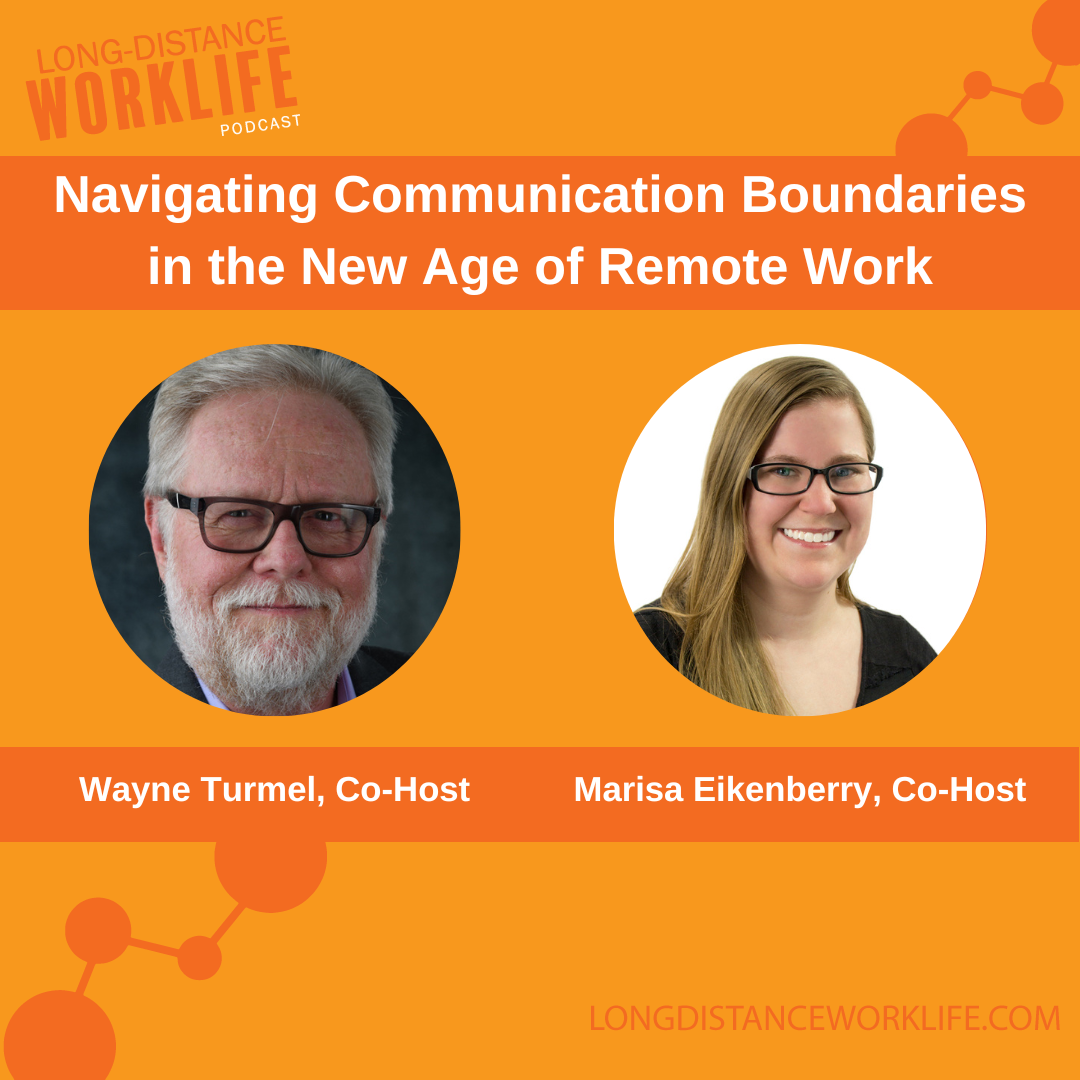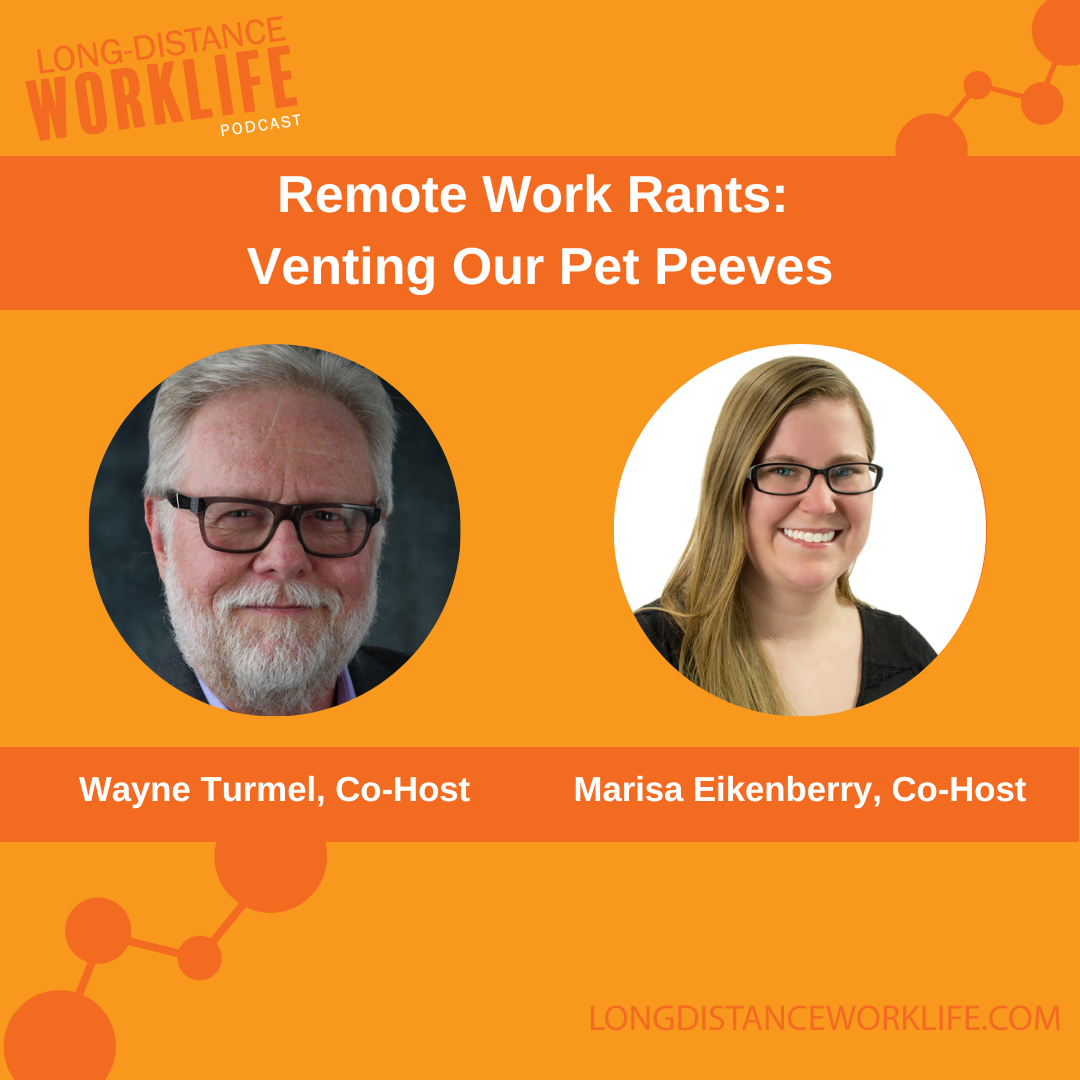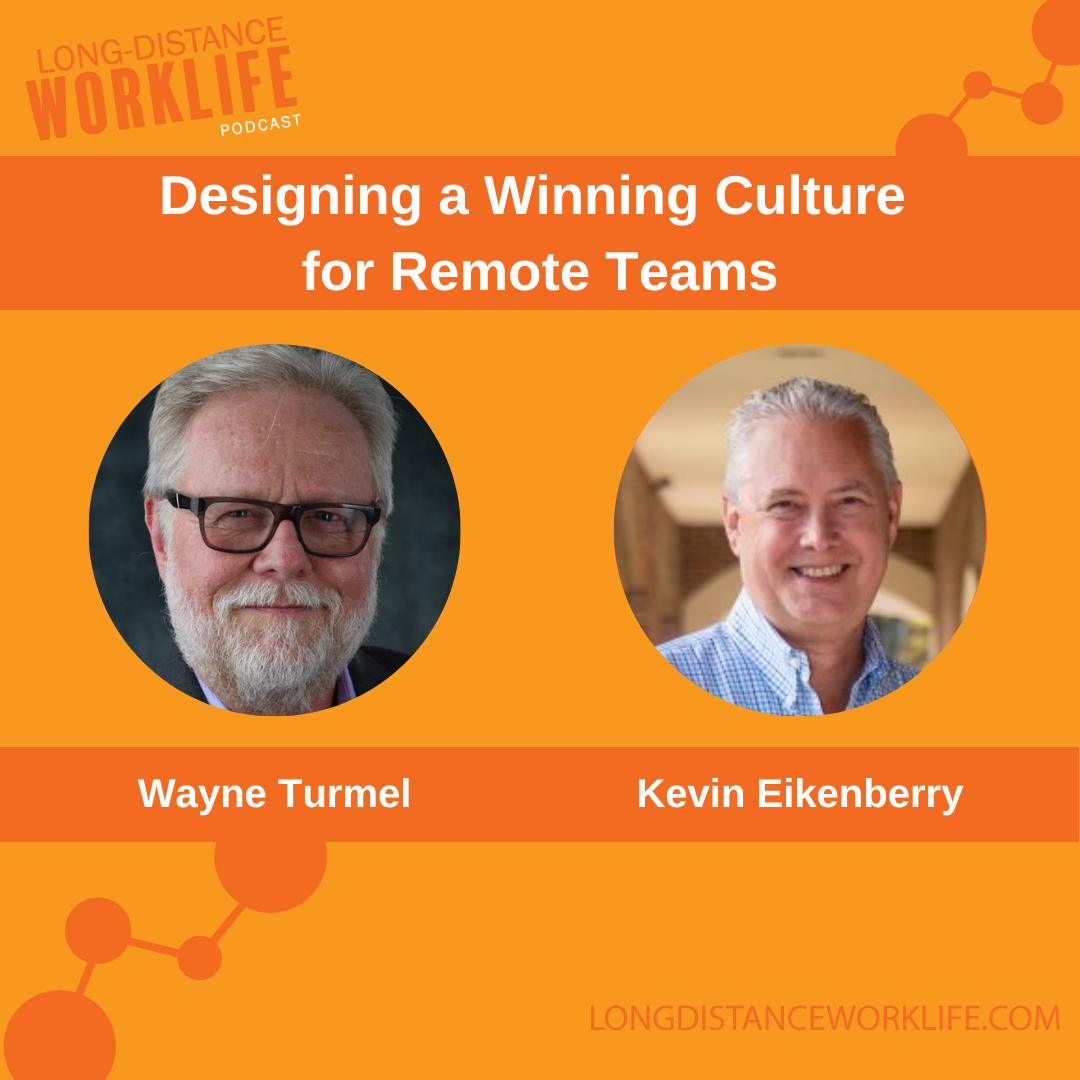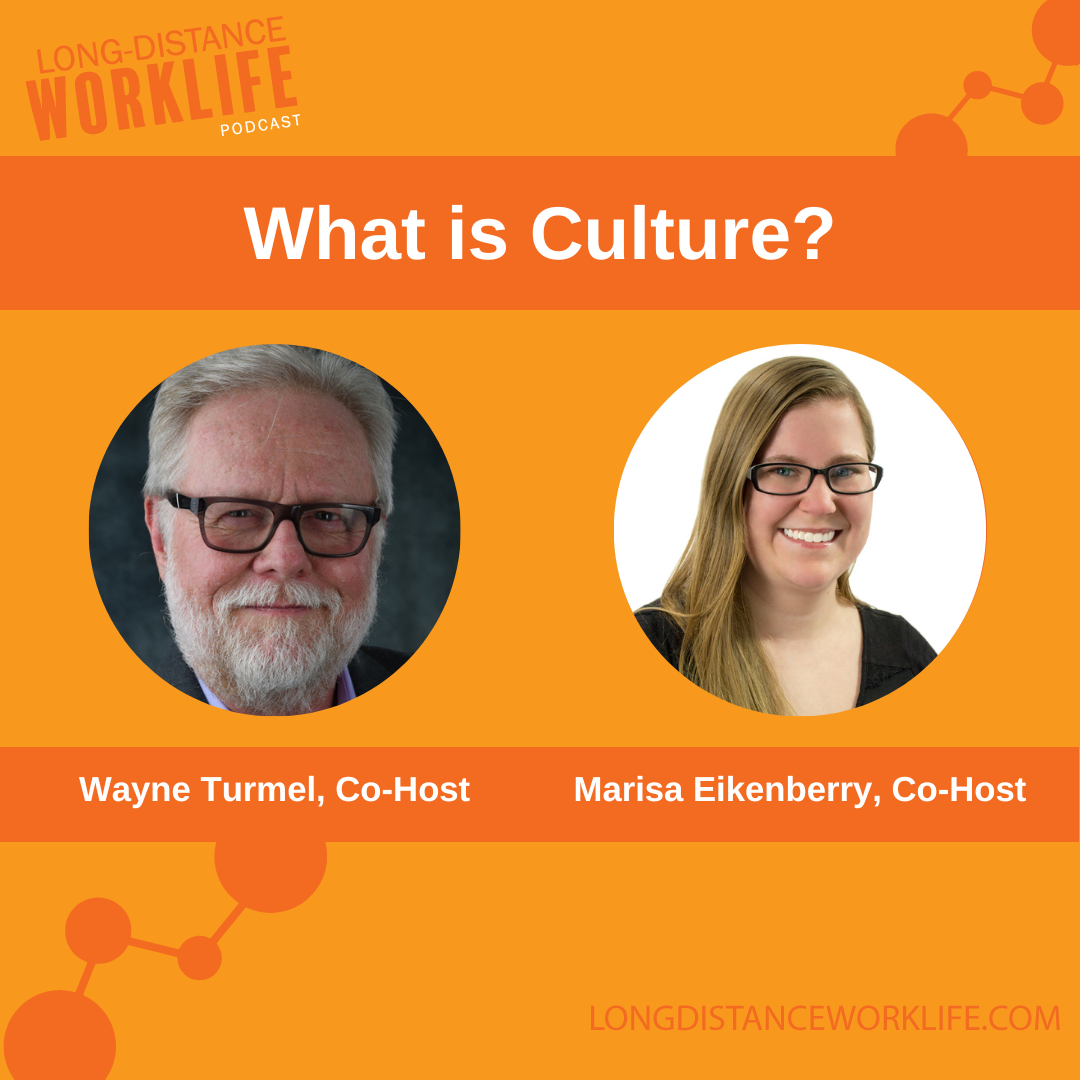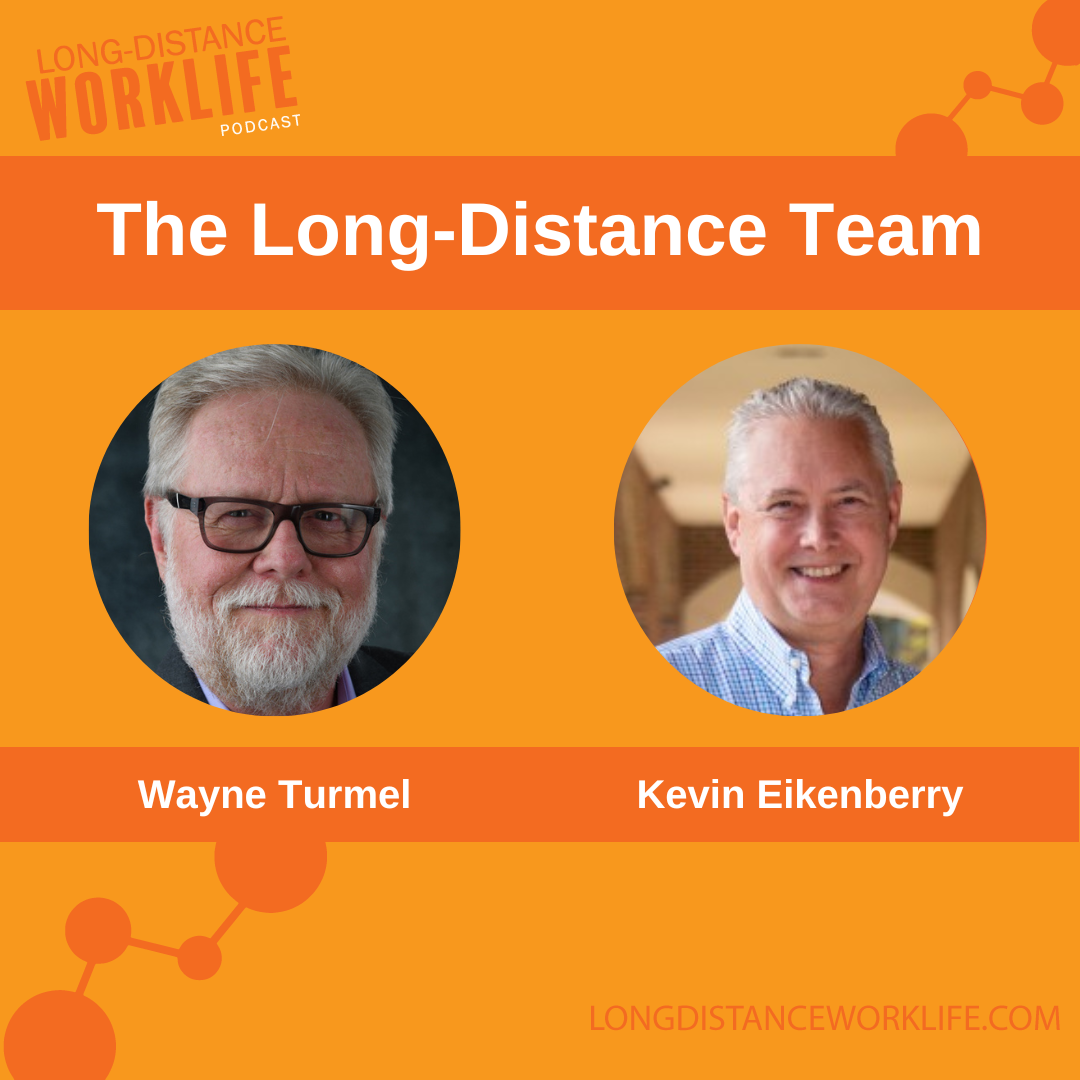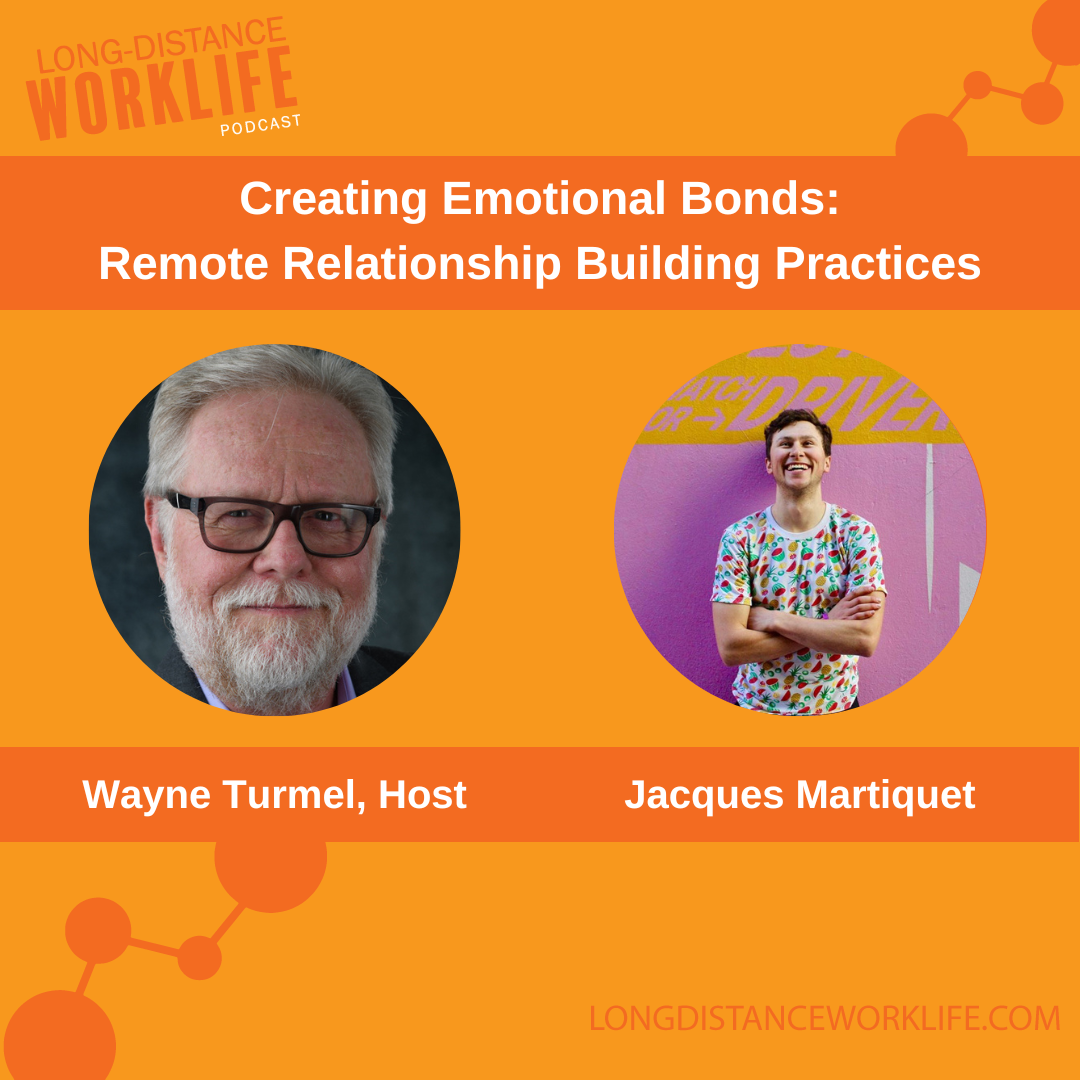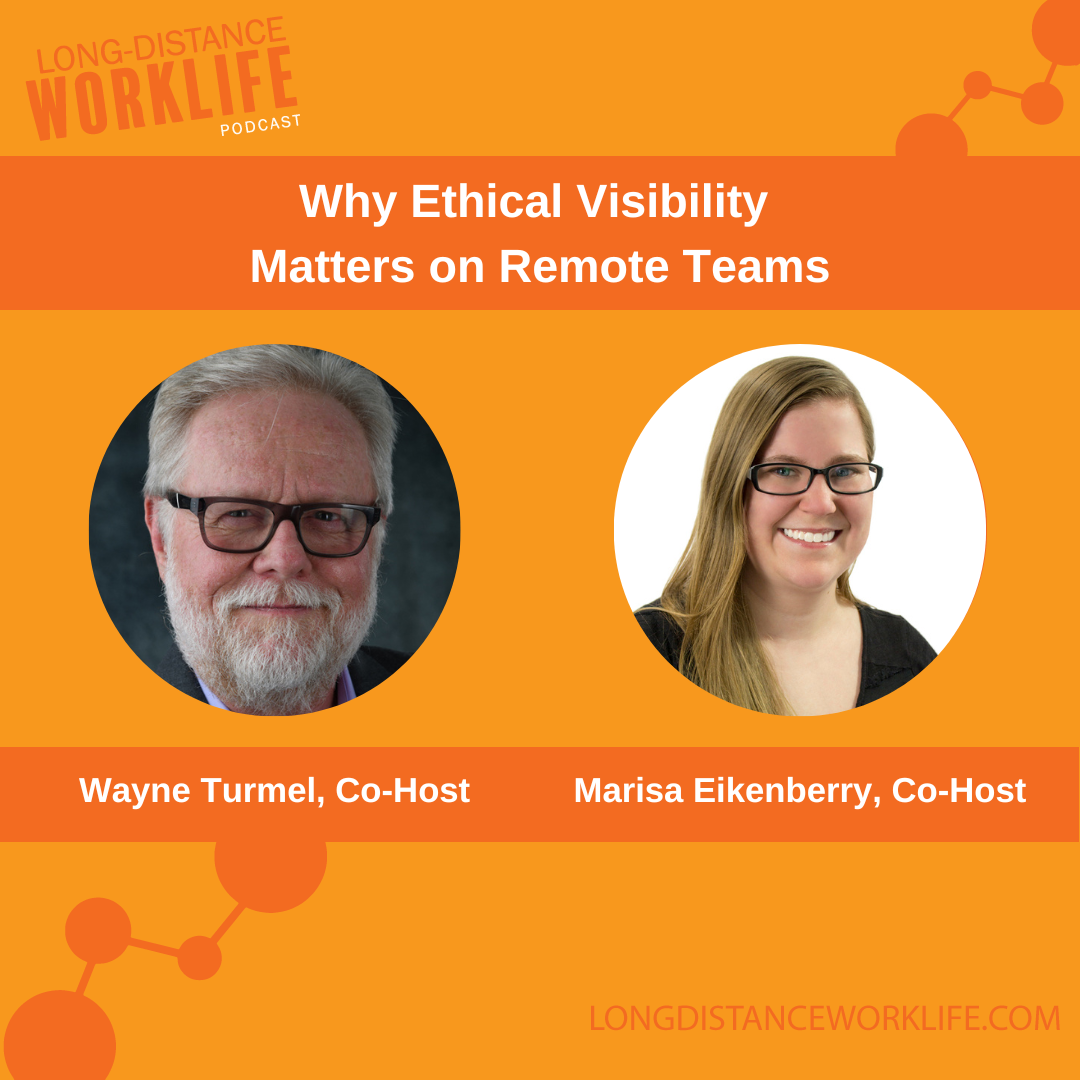In this episode of Long-Distance Worklife, co-hosts Marisa Eikenberry and Wayne Turmel discuss "the great mismatch" between organizations and remote workers when it comes to returning to the office. They explain that while there has always been a mismatch in expectations, the pandemic has highlighted the need for flexibility and understanding from both sides. They suggest that organizations need to understand their employees' needs before implementing return to office policies, rather than relying on perks like foosball tables or bring-your-dog-to-work day. Listeners will gain insight into how to navigate this great mismatch and create a successful hybrid work environment.
Key Takeaways
- The challenges of returning to the office after remote work due to the pandemic.
- The Great Mismatch: Polarization between organizations that want employees back in the office and employees who prefer remote work.
- Pilot over policy.
- Return to office was always going to be a challenge, and it's important to be flexible and adapt plans as needed.
Timestamps
00:00:00 Introduction: Return To Office And Remote Work Challenges
00:01:40 Unexpected Resistance to Return to Office
00:03:17 The Great Mismatch Between Employers and Employees
00:08:02 Corporate Mandates For In-person Work Are Ineffective
00:09:11 Benefits of Hybrid Working Arrangements
00:14:02 Pilot Over Policy for Return to Office
00:15:59 Strategies For Leaders: Overcoming Objections To Returning To Office
00:18:07 Summary: Returning to Office After Working Remotely
Related Episodes
Additional Resources
- "The Great Mismatch" Explains a Lot
- The Formula for Leading Change and Returning to the Office
- The One Question You Must Answer about Returning to the Office
- Is Return to Office An Insult?
- Learn more about Wayne Turmel
- Email Wayne Turmel
- Connect with Wayne Turmel on LinkedIn
- Learn more about Marisa Eikenberry
- Email Marisa Eikenberry
- Connect with Marisa Eikenberry on LinkedIn
- Purchase a copy of The Long-Distance Leader
- Purchase a copy of The Long-Distance Teammate
- Purchase a copy of The Long-Distance Team
- The Kevin Eikenberry Group
Order The Long-Distance Team
Remote leadership experts, Kevin Eikenberry and Wayne Turmel, help leaders navigate the new world of remote and hybrid teams to design the culture they desire for their teams and organizations in their new book!

00:00:07:20 - 00:00:18:16
Marisa Eikenberry
Welcome back to Long-Distance Worklife. Where we help you lead, work and thrive in remote and hybrid teams. I'm Marisa Eikenberry, a fellow remote worker. And joining me is my co-host and remote work expert Wayne Turmel. Say hi, Wayne.
00:00:18:21 - 00:00:21:13
Wayne Turmel
Yeah, that would be me. Hi, everybody. How are you?
00:00:22:18 - 00:00:23:17
Marisa Eikenberry
I'm good. How are you?
00:00:25:01 - 00:00:26:03
Wayne Turmel
I am swell.
00:00:26:20 - 00:00:44:12
Marisa Eikenberry
I love that answer. And well, speaking of swell, we're going to talk about some things that aren't going so swell and specifically return to office. We hear it talked about all the time. We all have mixed opinions about it. And so one of the things that I wanted to start with was we know it's not going very well.
00:00:44:12 - 00:00:48:18
Marisa Eikenberry
We see the headlines, we see people talking about it. But what exactly is happening?
00:00:49:20 - 00:01:01:11
Wayne Turmel
Well, as far as the headlines, we all know that we have to take that with a little bit of grain of salt, because nobody ever posts a headline that says, hey, the plan is working.
00:01:01:22 - 00:01:02:10
Marisa Eikenberry
Right?
00:01:02:16 - 00:01:39:21
Wayne Turmel
I have never seen that headline ever. Right. But but to be fair, there have been some challenges with remote with returning to the office and there are some things that have been happening. First of all, there was like all of these people quitting because they were like, no, we're not going to go back. And now there's a second wave, which for the record, I predicted, and you can find both Kevin and I talking about this a year or so ago, saying that there would be a return to office and then there would be this second wave of chaos that followed a few months after.
00:01:40:01 - 00:01:41:22
Wayne Turmel
And darned if we weren't right.
00:01:42:13 - 00:01:45:22
Marisa Eikenberry
We will link to that in the show notes.
00:01:46:05 - 00:02:08:06
Wayne Turmel
But we didn't know that that was going to happen. So, yeah, there are some problems with return to the office. And basically it's been that whatever the plan was and there were as many plans as there are organizations and the plans didn't work out. Now, you know, I'm a firm believer that if you want to hear God laugh, tell him your plans.
00:02:08:10 - 00:02:09:19
Marisa Eikenberry
Right. We've all heard that one.
00:02:10:06 - 00:02:35:05
Wayne Turmel
I am totally down with that particular thing. But there are some there's been some unexpected resistance. There has been a shuffling of things. We thought it would look like this, and now it looks like that. And sometimes that shuffling is kind of consensual and everybody agrees to it. And it's the right thing to do. And sometimes it's knee jerk reaction.
00:02:36:06 - 00:02:53:06
Wayne Turmel
But essentially, people didn't really know what to expect when they came back. And there has been this tension, this real tension between employers and employees.
00:02:54:04 - 00:03:10:20
Marisa Eikenberry
So kind of to to go off of that. There's a blog post that you posted and I'll link to it in the show notes, too, where recently you said that you were talking to somebody and they had said people are acting like we're insulting them by asking them to come back into the office. They knew that they would come back eventually.
00:03:10:21 - 00:03:16:00
Marisa Eikenberry
What gifts like did people really know that they were coming back? Is that part of this resistance?
00:03:17:09 - 00:03:44:12
Wayne Turmel
Let's remember what happened in March of 20. Whatever the heck it was. Right. Work. Originally, this was all going to be over by Memorial Day. We were going home for a few weeks. The cooties would die and go away and we would just get back to the office like nothing happened. And two something years later that turned out not to be true.
00:03:45:03 - 00:04:16:23
Wayne Turmel
So when we say people knew they'd be going back, yeah, they probably did. But they also didn't know that they would have to readjust their lives as dramatically as they did for several years. And then once people have adjusted their lives, now there's a transition to going back. And just as the transition to remote work was really traumatic and dramatic for some people and other people, it didn't bother them.
00:04:16:23 - 00:04:34:10
Wayne Turmel
Same is true of going back to the office. What has happened, though, and I think this is legit, is that, you know, I wish I had coined the term great mismatch. I really wish I had because it explains so much of what's going on.
00:04:34:18 - 00:04:36:14
Marisa Eikenberry
Okay. So what is the great mismatch?
00:04:37:02 - 00:04:45:04
Wayne Turmel
The mismatch is the difference in expectations between the organizations and the people doing the work.
00:04:45:12 - 00:04:46:08
Marisa Eikenberry
Okay. That makes sense.
00:04:46:08 - 00:04:57:23
Wayne Turmel
There's always been a mismatch. But capitalism 101, we pay you to do certain things. Yes, I can live with those expectations. Give me my check and I will just do what I'm told to do.
00:04:58:04 - 00:04:58:12
Marisa Eikenberry
Right.
00:04:58:15 - 00:05:29:07
Wayne Turmel
That's how the system works, right? What has happened in the world of work, though, is employers, many employers, not all employers, of course, many employers, especially the senior leadership, not so much the the managers, but the senior leadership have said, well, so much for COVID. Let's get back to the beautiful before times when all was well.
00:05:29:19 - 00:05:31:11
Marisa Eikenberry
And acting like nothing and.
00:05:31:11 - 00:05:57:23
Wayne Turmel
Acting like nothing happened. And that's the problem. Employees said, Wait a minute, we upended our lives. We adjusted all kinds of things. Some of the things about remote working we liked, some we hated. We didn't get a choice in the matter. If we wanted to keep our job, we had to do it. You were worried that there would be massive productivity loss?
00:05:57:23 - 00:06:08:09
Wayne Turmel
Turned out not to be the case. We stepped up. We did everything you asked us to do. We exceeded your expectations. And now you're going to act like none of that happened.
00:06:08:22 - 00:06:16:09
Marisa Eikenberry
Yeah, it might almost feel like a punishment in that way. Hey, I've been doing all of this really great stuff, and now I have to upend my life again.
00:06:16:15 - 00:06:44:02
Wayne Turmel
For two and a half years, I haven't had to commute, which means I essentially got a raise, right? Right. Even if you didn't pay me, I've gotten several thousands a year back in my pocket because I don't have to commute and do all that kind of stuff. I've stepped up, I've done the job. I've proven that the job can be done, or at least part of the job can be done remotely by now without asking us or giving us an option.
00:06:44:12 - 00:07:15:15
Wayne Turmel
You are now at asking us to give up something we have that's called the endowment effect, by the way. Okay. You are leading people. You need to know about this. And this shows up in our politics all the time. It is a simple law of psychology that people react more violently to emotionally violently, of course, to the idea that something is being taken away than they do the excitement and joy of something being granted.
00:07:16:02 - 00:07:21:12
Marisa Eikenberry
So it's like so many things we react more to the negative option regardless of what it's.
00:07:21:21 - 00:07:32:05
Wayne Turmel
So the reason people scream about entitlements in government is because if you have to take something back or change something, people will feel like something is being taken away.
00:07:32:15 - 00:07:33:07
Marisa Eikenberry
Mm hmm. Okay.
00:07:33:22 - 00:08:01:17
Wayne Turmel
Right. The whole Social Security debate here in the US is that on steroids? So people have gotten used to the flexibility of working from home. They've gotten used to having a little extra money in their pocket, not putting wear and tear on their car. And now you're asking them to give that up. And all they're hearing is it's because the company needs you to do that.
00:08:02:01 - 00:08:05:09
Wayne Turmel
It's kind of the corporate version of because I said so.
00:08:06:01 - 00:08:06:11
Marisa Eikenberry
Yeah.
00:08:06:18 - 00:08:09:15
Wayne Turmel
I never works. It never works.
00:08:10:02 - 00:08:27:15
Marisa Eikenberry
Well, I know we're hearing all the time, too, about, you know, oh, well, the culture is bad, so we have to bring everybody back to the office. Everybody's like, okay, either way, I didn't want them to be my friends anyway, so they don't care. Or it's like, you know, they're happy with the people that they talk to or they do have relationships with them.
00:08:27:15 - 00:08:32:09
Marisa Eikenberry
And so it's like bringing them back to the office is really going to change that or they don't feel like it's going to change or.
00:08:32:10 - 00:08:38:15
Wayne Turmel
They don't feel like it. Here's the thing. Kevin and I get lumped in a lot with the remote work zealots.
00:08:39:00 - 00:08:40:08
Marisa Eikenberry
Okay? Which make sense.
00:08:40:09 - 00:09:06:12
Wayne Turmel
Are like, you know, in a perfect world, we would burn all offices to the ground and turn them into Starbucks and, you know, whatever. And I don't believe that. Right. I think it depends on what is the work that needs to be done. I believe that there is something to in-person collaboration. I believe that we are basically a remote organization.
00:09:06:17 - 00:09:11:09
Wayne Turmel
But Kevin tries really hard, at least once a year, to get us in the same room at the same time.
00:09:11:15 - 00:09:22:01
Marisa Eikenberry
Yeah, I think at this point I'm the only hybrid employee The Kevin Eikenberry Group has, and it's only because I shoot video. I have to do that in the office. I can't do that from here.
00:09:22:08 - 00:09:29:03
Wayne Turmel
But that's the thing. There are tasks that need to be done in the office that you can't avoid. Right. And oh, by the way, you live.
00:09:29:13 - 00:09:30:23
Marisa Eikenberry
Yeah, I'm not that far away.
00:09:32:17 - 00:10:05:19
Wayne Turmel
But that notion of. Yeah, you know what? You can work remotely and build relationships, but darned if it isn't easier if at least once in a while you're together and you socialize guys and you get to meet the new team members and you get to do that stuff. So there is a in the defense of the organizations, they are trying to do what's best for the business, and sometimes that's just a perceived thing, right?
00:10:05:19 - 00:10:29:21
Wayne Turmel
This you see this a lot in financial services. This business is all about relationships and networking and mentoring and, you know, for 150 years, banking has been done this way and will ever be thus. And therefore, it's, you know, you've got to come in right now seeing that there is some truth to that.
00:10:30:02 - 00:10:31:14
Marisa Eikenberry
Mm hmm.
00:10:32:08 - 00:10:40:16
Wayne Turmel
And we will find out if over time, as people vote with their feet and decide, no, that's not what I want to do if they change that.
00:10:41:03 - 00:10:41:12
Marisa Eikenberry
Right.
00:10:43:08 - 00:11:01:12
Wayne Turmel
But as with anything in life, if you come at it only from your point of view, you get this polarization. So you get organizations saying people are selfish and lazy and they just want to work in their pajamas. And, you know, we're paying you. Damn it. Get in here.
00:11:01:12 - 00:11:04:01
Marisa Eikenberry
Right. Right.
00:11:05:00 - 00:11:21:03
Wayne Turmel
And, you know, people are saying, you know, if all I do is fight traffic for an hour a day, hang my coat over my chair, sit down, try to avoid my annoying coworkers and then go home, Why am I going into the office?
00:11:21:09 - 00:11:22:10
Marisa Eikenberry
And it's a fair question.
00:11:23:01 - 00:11:28:09
Wayne Turmel
It's fair question because people have taken those, too. Binary extreme.
00:11:28:15 - 00:11:29:00
Marisa Eikenberry
Yeah.
00:11:30:12 - 00:11:51:16
Wayne Turmel
Now, if I. If you explained to me, you know what, we want people to collaborate. We want you to meet with your coworkers. We want you to have that flexibility. And oh, by the way, if you met more in the office and you did more of that, you wouldn't be on Zoom calls for you know, for 8 hours a day.
00:11:52:02 - 00:11:52:10
Marisa Eikenberry
Right.
00:11:52:10 - 00:11:54:10
Wayne Turmel
Oh, I can get behind that.
00:11:54:15 - 00:11:59:12
Marisa Eikenberry
Yeah. Sometimes people need a reason for why they're going to do something. I can get on board with a reason.
00:12:00:15 - 00:12:28:17
Wayne Turmel
And that's the thing, is that we don't give reasons when people say, I want to work from home. Why? Because I want to. Well, that's not going to convince your boss. Right. Right. So, again, we live in this binary world where everybody lives on the extremes, but the numbers, if you look at what people say about hybrid work, remote work, what people most people want isn't to never see the office again.
00:12:28:17 - 00:12:53:21
Wayne Turmel
It's more flexibility and control over their lives. So if you look at the bell curve and it's always a bell curve when you deal with human beings on one end of the bell curve, you've got about 10% of the people who the minute the doors were open, could not get back in the office fast enough. Right. They hated their children or they were lonely or whatever the reason.
00:12:53:21 - 00:13:20:22
Wayne Turmel
Right. Or they desperately crave human companionship. Right. There were 10% of the people who, if they work from home at all, couldn't wait to get back. Right on the tail end. You've got somewhere between ten, 12, maybe 15% in some industries of people who never want to see the office again, they have adjusted to working remotely. Many of them have physically moved right locations.
00:13:22:07 - 00:13:23:11
Marisa Eikenberry
Back to the office anyway.
00:13:23:21 - 00:13:40:08
Wayne Turmel
Their commute would be uglier than before. They enjoyed the flexibility of remote work. Many of that 10 to 12% are already voting with their feet because they're going, No, I ain't ever going back because I have a choice. Oh, look, I have a choice.
00:13:40:18 - 00:13:41:05
Marisa Eikenberry
Right.
00:13:41:21 - 00:14:06:22
Wayne Turmel
Now. You've got that middle hump of your bell curve and people are on a spectrum on this, but they kind of understand the advantages of being in the office and they want that flexibility. Maybe they don't want to go in every day. Maybe they want to go in when it makes sense. Hey, we're having a meeting today. Okay, I'll go in.
00:14:07:11 - 00:14:09:20
Marisa Eikenberry
Right. Yeah. Or I know they want.
00:14:09:20 - 00:14:15:03
Wayne Turmel
Some kind of flexibility. But that's the. That's the vast majority of people.
00:14:15:08 - 00:14:15:19
Marisa Eikenberry
Yeah.
00:14:16:06 - 00:14:20:11
Wayne Turmel
Fit in that center part. And that's where. Where the mismatch comes in.
00:14:21:01 - 00:14:21:11
Marisa Eikenberry
Okay.
00:14:21:16 - 00:14:28:00
Wayne Turmel
Right. Am I being asked to do something that is giving up more than I am gaining?
00:14:29:19 - 00:14:30:03
Marisa Eikenberry
Yeah.
00:14:31:13 - 00:14:50:19
Wayne Turmel
And the way we get around this is by I you know, if we're thinking about how do we make Return to work subclass, there are really two things. The first is don't put ironclad policies in place until you see how it works.
00:14:51:17 - 00:14:52:06
Marisa Eikenberry
Makes sense.
00:14:53:04 - 00:15:17:07
Wayne Turmel
Kevin came up with this brilliant term and he came up with it about a minute and a half after we finished the long distance team. So it's not in the book, but his phrase, and I love it and I use it all the time, is pilot before policy. Talk to everybody, figure out something that makes some sense, some compromise, even if it's not perfect.
00:15:17:13 - 00:15:45:06
Wayne Turmel
Compromise seldom is. Figure out something that is going to work and then let's see how it works. Is good work getting done? Are people collaborating? Are people feeling included? And part of the organization is, you know, is what we thought would happen working. And if it's if it is great, we can keep what's working. If it's kind of working, how can we tweak it?
00:15:45:10 - 00:15:52:22
Wayne Turmel
And if it's not working, what can we do now? But the minute you put it in policy and you say this is the way it is.
00:15:53:10 - 00:15:53:19
Marisa Eikenberry
Right.
00:15:55:12 - 00:15:58:04
Wayne Turmel
Then it's almost impossible to adjust.
00:15:58:17 - 00:16:15:13
Marisa Eikenberry
So, okay, let's say why not just let's say I know we have leaders listening to this show now and in the future, if they're having issues with this return to office, then what should they be doing right now? I mean, I know that you just said pilot over policy, like, how do they get started?
00:16:16:02 - 00:16:28:22
Wayne Turmel
It starts with, do you know what the objection is? Right. If you're getting your senior leaders coming down on you saying, we have to do this, the correct question is why?
00:16:29:16 - 00:16:30:02
Marisa Eikenberry
Right.
00:16:30:14 - 00:16:38:13
Wayne Turmel
And what happens if we don't? We need to act. Right. Where is part of you? The first part coming from?
00:16:38:23 - 00:16:40:05
Marisa Eikenberry
Mm hmm.
00:16:41:05 - 00:16:45:21
Wayne Turmel
If the answer is because. Okay, that's not a great answer.
00:16:46:02 - 00:16:47:09
Marisa Eikenberry
Yeah. Come up with another one.
00:16:48:02 - 00:17:01:20
Wayne Turmel
Try again. But then there's part of the second part, which is what? How do you feel about coming back? What are you worried about? What do you want to see?
00:17:02:07 - 00:17:02:14
Marisa Eikenberry
Mm hmm.
00:17:03:06 - 00:17:08:22
Wayne Turmel
What do you think you're giving up? And what could you potentially be gaining?
00:17:09:14 - 00:17:12:11
Marisa Eikenberry
So to boil it down, you need to talk to your people.
00:17:13:00 - 00:17:46:16
Wayne Turmel
You need to talk to your people and the manager. And one day, we're going to talk about my absolutely brilliant managers, the heartbeat model. Okay. But we we are uniquely positioned to have a foot in both canoes to be terribly Canadian. You know, we have the ear of those above us. And the visibility that the individual worker may not have right.
00:17:47:03 - 00:18:07:07
Wayne Turmel
Right. So we're in a unique position to facilitate this conversation and we need to do it. As you look at return to office. Why has it been a mess? Well, what are the things that are going wrong? There were a couple of things, right? One is people came in sulky and moping because they didn't want to be there.
00:18:07:13 - 00:18:09:09
Marisa Eikenberry
Yeah. Attitude is always going to play into.
00:18:09:09 - 00:18:31:16
Wayne Turmel
Yeah. And pretending like it didn't. And then not offering flexibility. It's like, good, you're back. Well, can I work from home a day or two a week? No. Just know that. Well, now you've got resentment and craziness and. And, like, that's the other thing is, remember that bell curve of people who were perfectly happy to say, Yeah, okay, I'll go in.
00:18:32:03 - 00:18:38:02
Wayne Turmel
They kind of, after a while, remembered what they didn't like about being in the office.
00:18:39:20 - 00:18:41:08
Marisa Eikenberry
The rose colored glasses came off.
00:18:41:17 - 00:19:07:13
Wayne Turmel
Rose colored glasses came off and they went, Oh, yeah, it's really hard to do quiet heads down work. And oh yeah, I really dislike sitting next to Bob and, you know, so it's like, Yeah, fine, we're back and I'm glad to be back in the social. Social interaction and, and excitement and not staring at the same walls and all of that's great and.
00:19:07:13 - 00:19:08:13
Wayne Turmel
Oh yeah, that's right.
00:19:09:10 - 00:19:24:20
Marisa Eikenberry
Yeah. Well, and something else I've seen too and I know, I know we're about to run out of time, but like, I know that some companies in their way of, you know, okay, we're going to, we're gonna bring people back and we need to motivate them with something. Okay. Deejays in the lunchroom Really?
00:19:26:06 - 00:19:38:18
Wayne Turmel
You know, foosball tables bring your dog to work day. What You have to understand who your people are before you make that work. Yes. You know.
00:19:39:09 - 00:19:44:01
Marisa Eikenberry
So it's like, oh, D.J. in the lunchroom. Or I could just be my own DJ at home in my kitchen.
00:19:44:10 - 00:19:47:13
Wayne Turmel
And do you understand? Completely.
00:19:47:14 - 00:19:47:22
Marisa Eikenberry
Yeah.
00:19:48:23 - 00:19:53:04
Wayne Turmel
Yes. Young pad one, You have you have reached enlightenment.
00:19:54:01 - 00:19:55:13
Marisa Eikenberry
It was going to be like. So, yeah.
00:19:56:08 - 00:20:07:13
Wayne Turmel
Return to office. What a shock. We made a plan. It didn't work out exactly the way we thought it would. That should surprise nobody.
00:20:08:07 - 00:20:08:18
Marisa Eikenberry
Right.
00:20:09:00 - 00:20:35:23
Wayne Turmel
What we are trying to do now is say, What do we do about it? What do we do next? And that only happens through understanding of everybody's point of view, facilitating the conversation and reaching commitments and agreements and compromises. For now that we resist, we always and people are tired of hearing me say this We always reserve the right to get smarter.
00:20:36:10 - 00:20:41:12
Marisa Eikenberry
Absolutely. Now we do the best we can until we know better. And then when we know better, we do better.
00:20:41:21 - 00:20:46:06
Wayne Turmel
Okay. There you go. So that's the story on Return to Office.
00:20:46:13 - 00:21:05:13
Marisa Eikenberry
Well, thank you so much, Wayne, for this conversation. I think it was great and I hope our listeners get a lot out of it. And, listeners, thank you for listening to the long distance worklife for show notes, transcripts and other resources. Make sure to visit longdistanceworklife.com. If you haven't yet, subscribe to the podcast so you won't miss any future episodes while you're there.
00:21:05:13 - 00:21:19:02
Marisa Eikenberry
Be sure to like and review. This helps us know what you love about our show. Feel free to contact us via email or LinkedIn with the links in our show notes and let us know you listen to this episode or suggest a topic for Wayne and I do tack on a future episode. We'd love to hear from you.
00:21:19:18 - 00:21:45:01
Marisa Eikenberry
And if you'd like to learn more about remote teams, order Wayne and Kevin Eikenberry’s new book, The Long-Distance Team, you can learn more about the book at LongDistanceTeamBook.com. Thanks for joining us. And as Wayne likes to say, don't let the weasels get you down.

